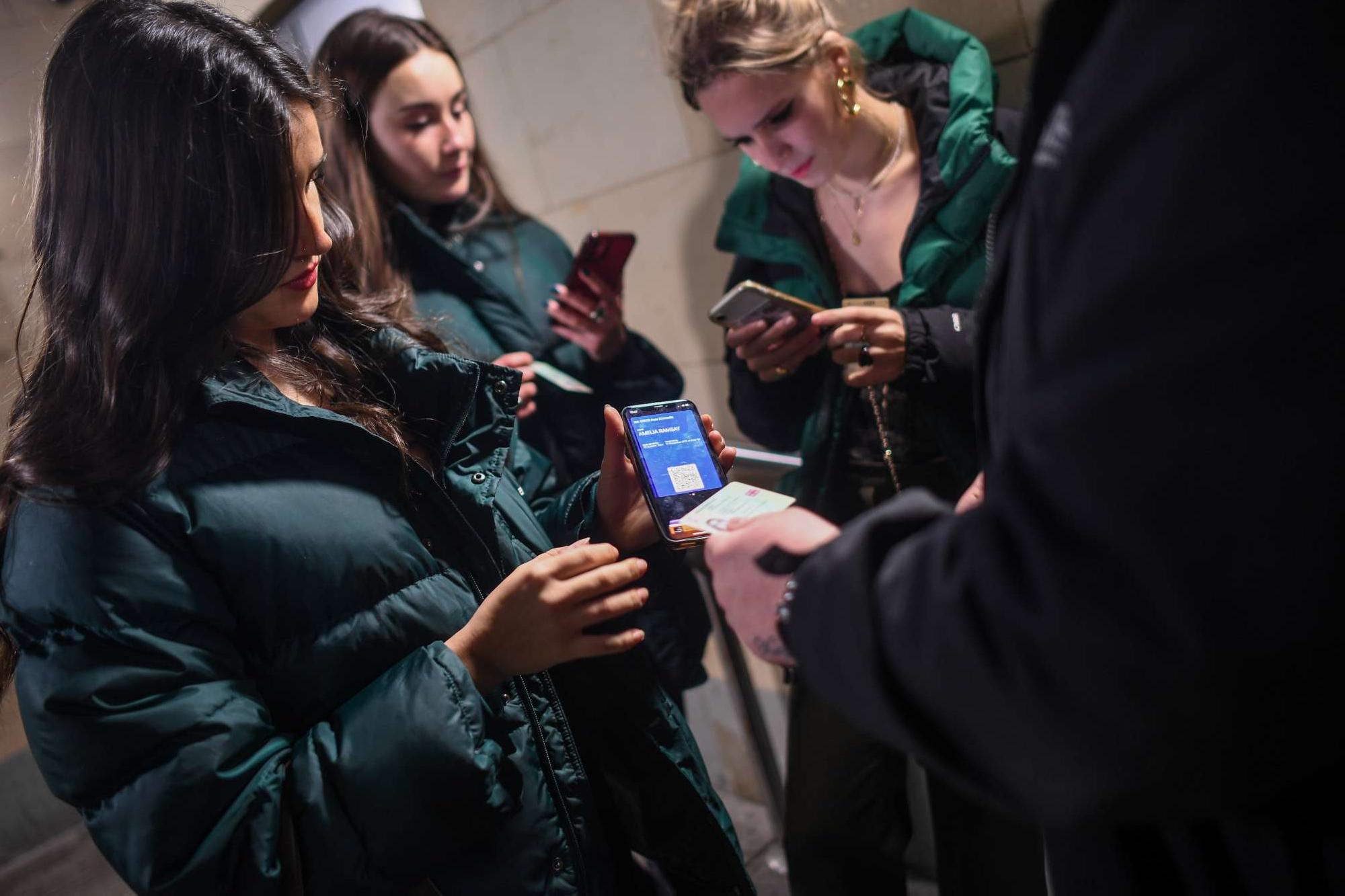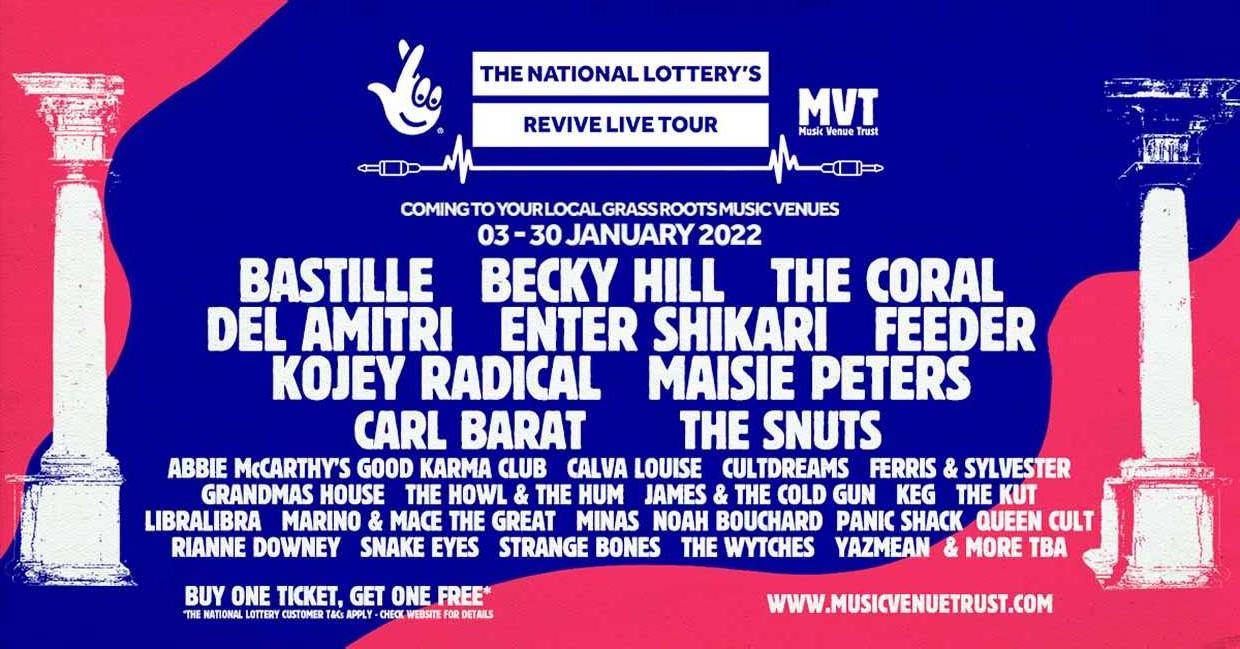
Jim Dyson/Getty Images – Willow Smith performed at Electric Ballroom in London, England, Dec. 9.
The UK has been in full swing since its July 19 reopening, but the latest variant has brought things to a halt.
The UK’s grassroots music sector recorded an attendance drop of 23% in the week since the government announced its Plan B response to the emergence of the latest coronavirus variant, which included the introduction of COVID passports to get inside certain venues.
The UK’s Music Venue Trust conducted a survey among its members (parameters below), which found that many have experienced “a catastrophic drop in attendance, advance ticket sales and spend per head (…) since the Government announced the implementation of the Plan B restrictions last Wednesday, [Dec. 8] placing the entire sector back on red alert for the risk of permanent closures.”
The survey shows “attendance at shows has dropped by 23% resulting in a 27% decline in gross income. Future income from ticket sales also declined by 27%, as gig goers’ confidence was shattered by a series of government announcements on the Omicron variant.”
Losses across the sector in the first week of this new phase of the COVID crisis hit nearly £2 million ($2.6 million), with 86% of grassroots music venues taking part in the survey reporting negative impacts and 61% having to cancel at least one event in the week Dec. 6-13.

Peter Summers/Getty Images – A group of women show their COVID passports as they enter La Belle Angele nightclub in Edinburgh, Scotland. The Scottish government’s vaccine passport scheme came into effect in October, later negative tests were also allowed.
Now, it’s the same in England.
The biggest causes of cancellations were a performer/member of the touring party testing positive for Covid-19 (35.6%), private hire bookings – Christmas parties in particular – being cancelled by the organizer (31.3%) and poor sales performance in general (23.6%). The latter two developments are a reflection of ticket buyers’ renewed doubts about going out.
As is the high number of no shows, advance ticket buyers who did not attend a show, which stood at 79.2% in that week. It marks an average no show increase of 23.1%. In concrete numbers it means that an estimated 142,772 ticket holders did not attend the show they had bought tickets for.
76.4% saw a decrease in their gross income, the average gross income decrease was 27.1%. 74.3% saw a decrease in their advance ticket sales, the average advance ticket sales decrease was 27%.
The UK’s Music Venue Alliance comprised 918 members at press time, amongst which the survey was circulated. 284 venue operators responded, a sample considered statistically significant and providing 95% accuracy in relation to outcomes for the whole sector, according to MVT.
Also relying on supplemental data from its 2019 Grassroots Music Venue Survey, MVT estimates the gross income lost in the week Dec. 6-13 at £1,938,602 ($2.56 million). The figure consists of total weekly lost revenue from ticket holders who did not show up (£859,386), total weekly downturn in walk ups, and as a result of cancellations, affecting the potential ticket and bar spend (£543,199), as well as total weekly decrease in advance ticket sales (£536,017).

– The lineup of the second Revive Live Tour.
The initiative is realized by the UK’s Music Venue Trust and the National Lottery.
As MVT strategic director Beverley Whitrick pointed out, the weeks leading up to Christmas are the busiest time of the year for grassroots music venues, representing more than 20% of their annual income being raised during the party season. “Rapid declines in attendance at this time of year represent an exponential threat to the whole sector, and losses of this magnitude cannot be sustained without throwing hundreds of music venues into crisis mode and at risk of permanent closure. A ‘no show’ isn’t just lost ticket income, it’s lost bar take and excess staff costs,” she commented.
MVT CEO Mark Davyd added, “It feels like we are back exactly where we were in March 2020, when confusing government messaging created a ‘stealth lockdown’ – venues apparently able to open but in reality haemorrhaging money at a rate that will inevitably result in permanent closures unless the government acts quickly to prevent it.”
MVT has called for the UK’s secretary of state for culture, Nadine Dorries, to immediately create a ring-fenced stabilization fund to protect the sector, pointing out that “significant funding from the £1.57 billion Culture Recovery Fund remains unspent and unallocated.”
“We have been here before,” continued Davyd, “This time the government already has all the tools in place that it needs to manage this impact and prevent permanent closures in the grassroots music venue sector. The Culture Recovery Fund can be swiftly adapted to mitigate this economic impact, the money is already there and waiting, we just need the secretary of state to act quickly. The government previously used business rate suspension and VAT cuts to support and sustain the sector. We don’t need to spend time considering the situation; the government already knows what can be done and can choose very quickly to do it.”
The UK government’s Plan B announcement also introduced the requirement to show a negative test or proof of vaccination as means of entry, creating logistical challenges in times when independent businesses cannot afford them. The UK’s Night Time Industries Association (NTIA) has found that in Scotland and Wales, where such health proofs have been required for some time now, trade declined by 30% and 26%, respectively, since the introduction of what is generally referred to as COVID passports.
NTIA CEO Michael Kill commented, “The Government’s public health messaging over the last two weeks has cost the industry billions in trade, lost stock and staff hours. These additional restrictions will jeopardize the survival of businesses in 2022 – we need urgent additional support now. And it goes without saying that if more measures are increased we need a proportionate support package including a return of the furlough scheme.”
MVT also just announced that the Revive Live Tour, realized with the help of the UK’s National Lottery, will return in January 2022. Under the collaboration, the the National Lottery underwrites the full touring and production costs of artists participating to enable the grassroots live music industry to start promoting shows again in the knowledge that the upfront costs associated with touring are covered.
Revive Live has secured some big names as headliners, who’ll perform one-off shows at various venues across the country, including Enter Shikari, Becky Hill, Bastille, Feeder, Kojey Radical, Maisie Peters and The Coral. Touring artists include KEG, The Wytches, Cultdreams, Ferris & Sylvester, The Kut, Good Karma Club, BLOCS, Strange Bones, Calva Louise and LibraLibra.



 Daily Pulse
Subscribe
Daily Pulse
Subscribe

